Campaigning comes to a standstill in honour of Labour stalwart Roy Mason, 91
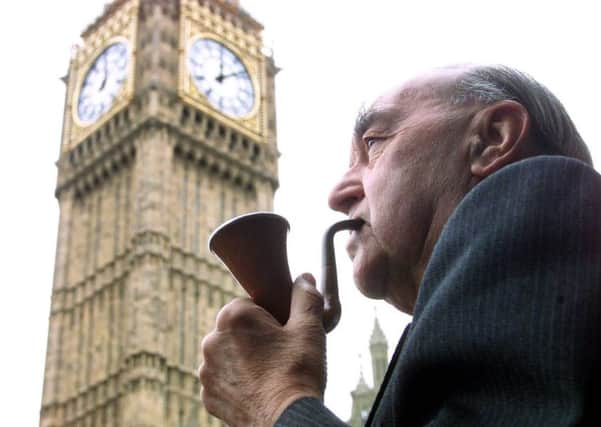

Opposition leader Ed Miliband was among those who lamented the loss of Lord Mason of Barnsley after being delivered the news of his death from a long illness yesterday.
The 91-year-old’s remarkable journey from the coal mines of South Yorkshire to the benches of the House of Commons and later the House of Lords made him an object of admiration with colleagues and constituents.
Advertisement
Hide AdAdvertisement
Hide AdMr Miliband said: “Roy Mason was a huge figure in the Labour movement, and he will be sorely missed.
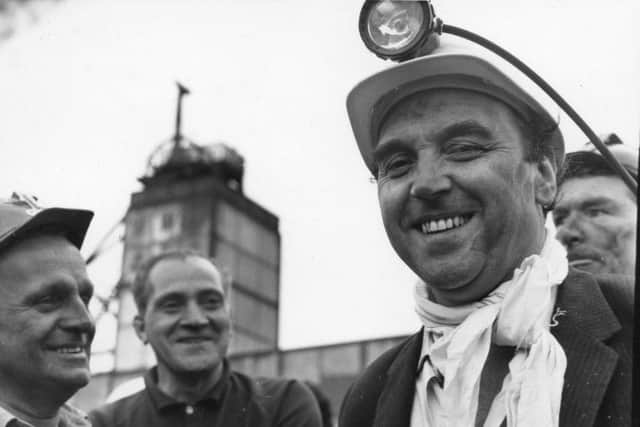

“He passionately believed in the power of politics to change people’s lives and spent his whole life trying to improve the lives of working people, none more so than his constituents in Barnsley.”
The Labour leader credited Lord Mason with making a “huge contribution to British political life” serving as Barnsley’s MP from 1953 to 1987, rising through the ranks to become Defence Secretary under Harold Wilson and Northern Ireland Secretary in James Callaghan’s government.
His zero-tolerance approach to terrorists at the height of the Troubles is still remembered in Ulster today.
Advertisement
Hide AdAdvertisement
Hide Ad“Roy was a formidable man with a deep passion for social justice,” added Mr Miliband.
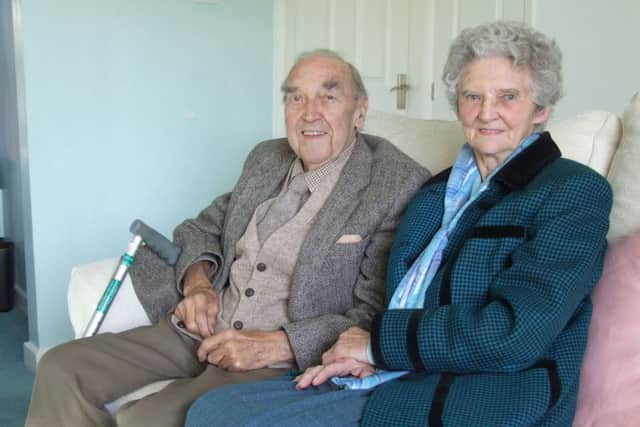

Lord Mason followed in his father’s footsteps and became a miner after leaving school at 14.
He cut an unlikely figure when he first stepped into the House of Commons in 1953.
At 28, he was noticeably younger than the elder statesmen he shared the backbenches with. He wasn’t armed with a private education or a university degree and the only suit the Barnsley pit lad owned was the one he’d got married in.
Advertisement
Hide AdAdvertisement
Hide AdHowever, if the young pretender from South Yorkshire, who three decades later would be made a peer, felt out of place in the post-war Parliament, he didn’t show it.
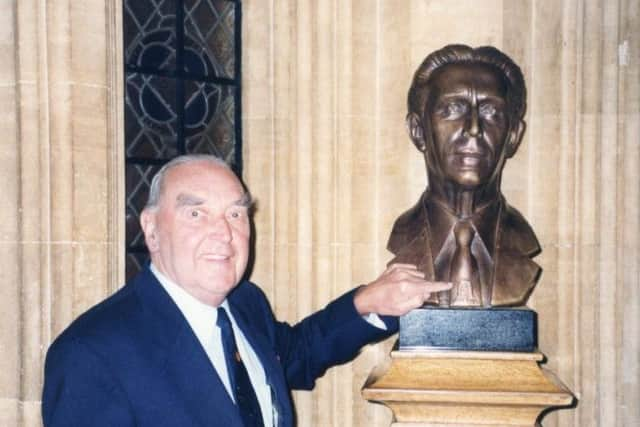

“In those days, to become a politician in your 20s was extremely rare, ” says Brian Elliott, a local historian and author from Doncaster who has spent the last three years sifting through the archives for a book on Lord Mason’s life and times. “In the 1950s, Westminster was seen as a closed shop for the working classes. I’m sure when he first arrived there were times when he wondered how he’d got there.
“There’s a lovely story of how he was walking through the corridors of the House. Winston Churchill, who remained a pugnacious character despite being in his 80s, brushed past him and sent him flying to the floor. He only had the one suit and was worried it wouldn’t stand up to such robust treatment.”
While his background may have marked him as outsider, Lord Mason quickly proved his worth, displaying the same determination his own father had done when he walked from Staffordshire to South Yorkshire in search of work.
Advertisement
Hide AdAdvertisement
Hide Ad“I’m not sure even he knows where his political drive came from, but by the time he became an MP he’d already lived through a lot of hard times, ” says Brian. “His father was constantly ill from working down the pit and when he left school at 14, he was unemployed before becoming a miner himself.
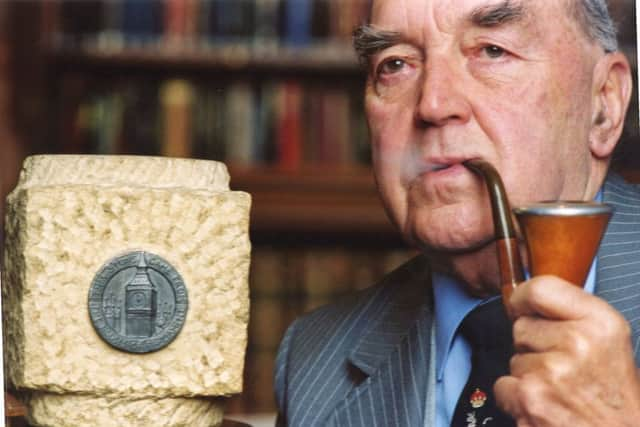

“On his second shift, he saw one of his colleagues carried out of the pit dead and later he escaped major injury when part of the colliery roof collapsed.
“However, he was passionate that ordinary people could make a difference and after rising through the ranks of the NUM he was selected to stand as the Labour Party candidate in the Barnsley by-election of 1953. From there, he never looked back.”
While he found himself in the company of Clement Attlee, Hugh Gaitskell, Harold Wilson and James Callaghan, Lord Mason, refused to allow his head to be turned by the bright lights of London. At 84, he still lived in the same semi-detached house in the centre of Barnsley he moved to with his wife Marjorie shortly after their wedding and much of his career was influenced by those early years.
Advertisement
Hide AdAdvertisement
Hide AdIn the mid-1960s, his ascent through the ranks began and his appointment as Minister of Power in Wilson’s government was seen as an ideal position for a man with coal running through his veins.
“He had to make some tough decisions, ” says Brian. “The Government had decided to build a nuclear power station near to an old Durham coalfield and a wave of pit closures had already begun. It sparked a lot of resentment, but Mason proved he wasn’t a yes man. He managed to secure contracts for a number of coal-fired power stations and spoke passionately about the need to safeguard the industry.
“He never forgot his roots. Some have said that he didn’t do enough during the 1984 miners’ strike, but when you look through Hansard and see the amount of questions he tabled that’s just not true. Today, there are television cameras in the House of Commons and we know so much more about the inner workings of Parliament.
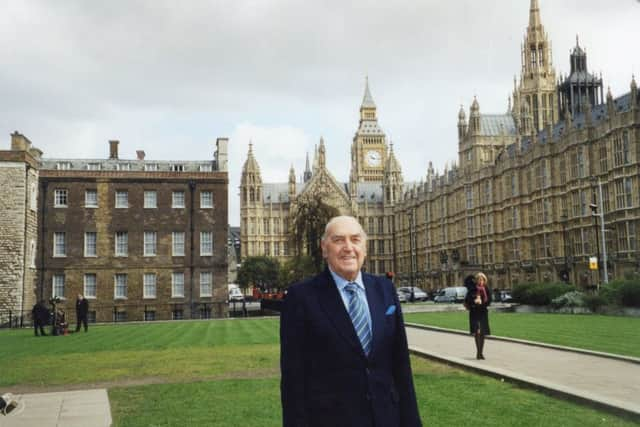

“Back then, much more went on behind closed doors.”
An outspoken supporter of the Bevin Boys, whose work down the mines during the Second World War was finally and officially recognised earlier this year, Lord Mason’s Yorkshire grit also proved invaluable during the height of the Troubles in Northern Ireland.
Advertisement
Hide AdAdvertisement
Hide AdAppointed Secretary of State under Callaghan in 1976, he adopted what would now be dubbed a zero-tolerance approach to the terrorists and there are those who believe that had Labour not been sent packing into the political wilderness following the General Election defeat of 1979, peace would have been achieved far sooner.
“His appointment was greeted by outburst of violence and as he flew over Northern Ireland in a helicopter he remembers seeing Belfast burning, ” adds Brian. “It was one of the hardest jobs in government, but Mason remained firm but fair throughout. He came under a lot of criticism from the party whip when he hinted troops could be withdrawn, if Ulster didn’t do more themselves to combat terrorism, but he knew Northern Ireland was like a big gas oven ready to explode.
“He was determined that the terrorists should be treated as criminals rather than political prisoners and during the three years he lived at Stormont he lived and breathed the Troubles. It was Martin McGuinness who famously said Mason ‘beat the s*** out of us’ which speaks volumes.
“Obviously, it was a high risk job. There were two armed guards stationed at the family’s home in Barnsley and wherever he went there was a high security presence. Apparently, when he was playing bowls one of the guards bent over and a gun fell out on to the green. I don’t think that went down too well in the clubhouse, but for Mason it was all part of the job.”
Advertisement
Hide AdAdvertisement
Hide AdFollowing the shock resignation of Wilson in 1976, Lord Mason’s name was among his possible successors. He never did pursue the leadership contest – a decision which earned him a note from the out-going PM telling him to have “more confidence” next time. However, within the course of a few years the Winter of Discontent, political in-fighting and a sea change of public mood meant there would be no second chance for Lord Mason to achieve the highest political office.
“I think there was a slight sense of regret at the time, but it obviously wasn’t meant to be, ” says Brian. “Mason achieved so much as an MP and, having been made a life peer, his work ethic continued.
“Until he suffered a stroke earlier this year, he sat in the Lords three days each week and although he is quite frail, his political mind remains sharp.
“Writing the life story of someone who spent so many decades at the heart of politics was too good an opportunity to turn down and was made so much easier because throughout his career Mason was such a great hoarder.
Advertisement
Hide AdAdvertisement
Hide Ad“When I first spoke to him about the possibility of a book, he said he had a few photographs and newspaper clippings which might be some help. In fact, he had thousands. This wasn’t just an edited highlights of the best bits, he’d also saved pieces criticising his decisions and a lot of satirical cartoons poking merciless fun at the great and the good.
“That tells you a lot about the man and the politician.”
READ MORE...